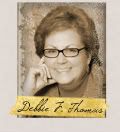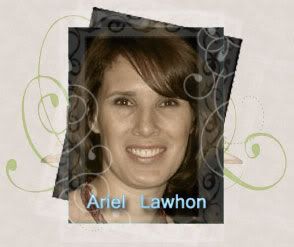
My lovely co-writers at NovelMatters have touched on elevated and challenging topics this week. Me? I’m writing about index cards, sort of. This is a continuing conversation—jump on in!—of Anne Lamott’s writing-craft classic, Bird by Bird.
I happen to adore index cards. They don’t ask much of the writer, just a few words, an idea, a recipe. That’s all. Honestly, I get a little nervous if my stockpile wanes.
I have a long history with index cards. I used them to make flash cards and flip books in elementary school. When marriage seemed like a reachable goal, I wrote out recipes like prayers, learned all the abbreviations, practiced my best printing.
Index cards have always been my choice for to-do lists. If I can fit my list on an index card—and I write really big—I can get it all done in one day, guaranteed!
In college, I made my first planner by stapling seven index cards together and labeling them Monday through Sunday. Crossing out completed tasks made my heart beat a little faster. Yep, I invented the planner. I also invented Jazzercize about this time, but I forgot to tell people about that, too.
I went through pallets of index cards in college--both times--for all the usual uses. I carried them in a special holder. It was yellow.
My most fiendish use of index cards came as a fifth-grade teacher. I tired of reading 12-page summaries of my student’s reading. My eager students—despite repeated lessons on main ideas—included every detail of even the most modest story twist. The index card came to the rescue.
I gave each student a 5X7 index card for their book report. At first, they tried writing 12 pages of summary, only with much, much smaller printing. When I reminded them about main events and sent them back to their seats, their frustration grew. Fifth graders are large by the end of the year, and I started feared for my life, until one of them—God bless ‘em!— finally succeeded. I was beginning to think I’d asked too much. (Note: This was long before texting…and they all progressed to 6th grade knowing how to write concise summaries.)
As a writer, I’ve used index cards to record scene ideas and then shuffled them into a sense of plot. I have 163 index cards for one book. My husband made a special holder, so I could page through the cards. (Note: If you do this, be sure to number the index cards once you have them in order. Learned this the hard way.)
Although this chapter is titled “Index Cards,” it’s not really about lined pieces of cardstock. No, this is a chapter about collecting what we see in the world, recording it for use in our novels, and then remembering where that stinkin’ card went.
I used to think that if something was important enough, I’d remember it until I got home, where I could simply write it down in my notebook like some normal functioning member of society…But then I wouldn’t.
Anne uses index cards as portable journals. The quickest way to stop a conversation is to whip out a fat journal and start taking notes. A black curtain of silence falls over the room. Index cards are small, firm, and easy to stow—perfect for clandestine note-taking. Simply jot a few words or several lines of dialogue. As Anne mentions, they fit in a pocket and won’t make your bum look lumpy. See, there are no excuses for letting a great idea evaporate.
… unbidden, seemingly out of nowhere, a thought or image arrives. Some will float into your head like goldfish, lovely, bright orange, and weightless, and you follow them like a child looking at an aquarium that was thought to be without fish.
These ideas come to us so vividly, so precisely, and oh so cleverly that we are tempted to believe they cannot be forgotten, but that is fairy dust, my dear writing friend. A Pulitzer Prize-winning idea will flit into your head and right back out again...unless you write it down. That’s what index cards are for.
My index-card life is not efficient or well organized.
Hey howdy! My question while reading this chapter was this: Anne, how in the world do you find that one brilliant idea when you need it? Who’s to say it hasn’t stuck to the bottom of someone’s shoe and gone on its own adventure or slipped into the fifth dimension via the portal under the couch?
Anne doesn’t say, but she basically comes down to using index cards as a mnemonic device. For most of us, our visual memory is the most enduring, especially for converting short-term memory to long-term memory. That’s why so many of us take notes during lectures or sermons. Taking notes is turning auditory information into visual information. And if we're younger than 30 and very, very lucky, we won't have to look at that card again.
Still, the idea of hefting around a bale of index cards in my purse and then relying on my aging brain to remember what a few obscure words might mean, doesn’t fill me with confidence. I throw notes like that away every day.
We talked about journaling earlier in the year to capture ideas that alight on our overtaxed minds. Maybe the most ideal way to hold ideas is a marriage of index cards and a journal that is divided into categories: description, dialogue, titles, story ideas, in the news, etc. And then taping the cards in place, like a hinge so you can read both sides, in the journal.
Is it too late in this post to ask if index cards are passé? Is there an index card app? There should be. Did I just invent an app? At least I’m telling you about it.
I have some practical questions for you: How do you capture ideas at inconvenient moments? A recorder? Journal? Camera? The tried-and-true index card? How do you organize what you’ve plucked from an orchard of ideas?

 For me, there are three things I look for in a beginning (things that capture my attention), 1) Story world--you could call this setting. But it's the way the writer was able to plant my feet
For me, there are three things I look for in a beginning (things that capture my attention), 1) Story world--you could call this setting. But it's the way the writer was able to plant my feet 
 I look for deliciousness - a hard to define quality of voice or mood that tells me I'm going to lovespending time inthe three hundred pages or so to come. Here's my two:
I look for deliciousness - a hard to define quality of voice or mood that tells me I'm going to lovespending time inthe three hundred pages or so to come. Here's my two: 

 Katy's excellent post
Katy's excellent post 














